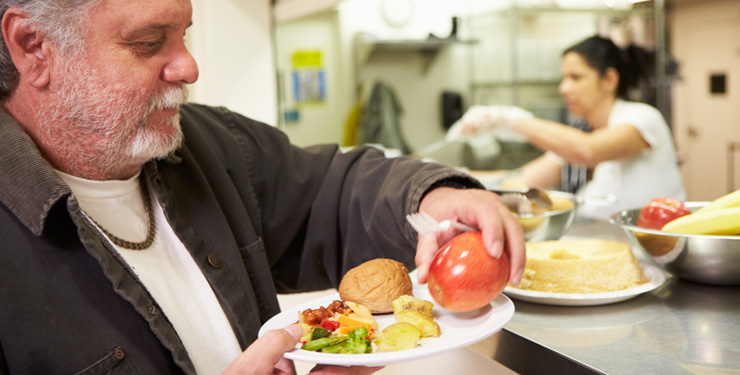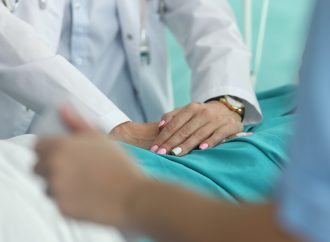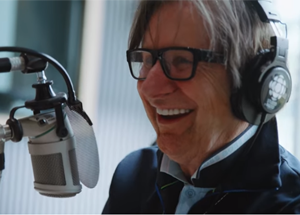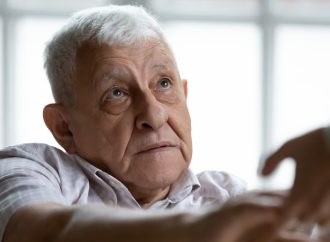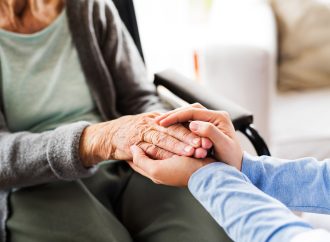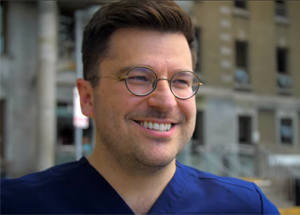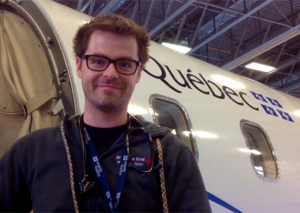Homelessness might not be a textbook disease that can be detected by a regular blood work, but its consequences on health cannot be overlooked. From addictions to cancer, the incidence of various diseases suddenly jumped while average life expectancy dropped to a mere 34 to 47 years old. Despite growing concerns about the burden of disease borne by the homeless, primary care services are usually scarce for this neglected fringe of the population, who often meet with the health care system when it is already too late. Lack of transportation, discrimination by health care workers, low health literacy: various systemic barriers to access to care keep homeless individuals on the streets even when they are ill.
Social determinants of health being usually taught in medical school in a rather superficial, almost childish way—if taught at all—I wished, as a budding family doctor, to witness how primary care could positively reverse their influence. Through word of mouth, I discovered the work of the Inner City Health Associates (ICHA), a community-based team of primary care providers who deliver health care to those who have been forgotten by our current health care system. Homeless individuals, just like refugees and Aboriginals, are sometimes persona non grata in clinics and hospitals where the staff is not appropriately trained to deliver culturally-sensitive care.
Inner City Health: Where Medicine Meets the Streets
Choosing an inner city health elective as a first clinical rotation can be challenging, but it has proven to also be an unprecedented learning experience. As a clerk, I was expected to help the team of attending physicians with consults, both scheduled and drop-ins, in order to hone my clinical skills. The ICHA having partnered with various shelters and community centres in the city of Toronto, as a team member for a month, I was also expected to rotate daily through different clinical settings.
Cities can make people sick, and it was through listening that I understood how privileged we are to not have to worry about our safety and our comfort.
Mondays would be spent at the central clinic on Queen Street, while Tuesdays would be dedicated to the care of Aboriginal men in a dedicated shelter. On Wednesdays—the most unpredictable days of all—I would follow the team of the PEACH Initiative, a newly-minted primary care initiative that delivers early palliative care to homeless individuals. Thursdays and Fridays would then be dedicated to Sistering, a community help center whose all-women staff delivers care to homeless, marginalized and low-income women. Entirely run by family physicians and their staff, composed by psychiatrists, nurses and social workers, the ICHA network is a model of care that is truly patient-centered: from discreetly identified clinics to the casual attire of physicians, every detail matters when it comes to making this marginalized population feel welcomed.
Family Physicians as Gateways to Care
Being a primary care physician holds a much different meaning when you can potentially become the only care provider of an individual. For many of the homeless individuals, previous encounters with the hospital-based model of care have proven to be unsuccessful, and incredibly shaming. Mr N has developed limping after a quarrel with security guards at an academic hospital after he tried using the washrooms, while Mr B did not show up for a follow-up of his fractured foot because he was mocked by a staff physician for hurting himself while foraging in a city dumpster. As a clerk, my most important responsibility was not to take a proper history of present illness, but rather to understand what drove these individuals to become as sick as they are.
Cities can make people sick, and it was through listening that I understood how privileged we are to not have to worry about our safety and our comfort. Homelessness being a symptom of growing inequality, some cities in Quebec have also created resources for the needy. In Montreal, the Old Brewery Mission, steps away from the Financial District and the Old Montreal, offers, since 2013, on-site primary care services to all homeless individuals, even if not housed at the shelter, while Médecins du monde delivers care to all marginalized populations through community-based clinics and, since 2014, even a mobile clinic!
Interning in inner city health triggered various questions about the current medical education curriculum that need to be addressed. With a shocking number of nearly five millions Canadians living with a low income, it is surprising to see how discriminatory our current health care model is. Between soaring drug costs and foreseeable challenging practice conditions for family physicians in some provinces, where do the marginalized populations need to stand when they need proper care? Family physicians have figured it all out: by offering them a medical home where they know they would be welcomed by their name, and not by their diseases.
—
Thank you to the amazing team at the Inner City Health Associates, who taught me that “politics is nothing but medicine at a larger scale”, for being great teachers, mentors and role models: Dr. Gary Bloch, Dr. Naheed Dosani, Dr. Ritika Goel, Dr. Stephen Hwang, Dr. Suzanne Shoush, Dr. Antoinette Wertman and all the staff whom I have met.
 Nina Nguyen
Nina Nguyen
3rd-year medical student, Unvisersité de Sherbrooke

